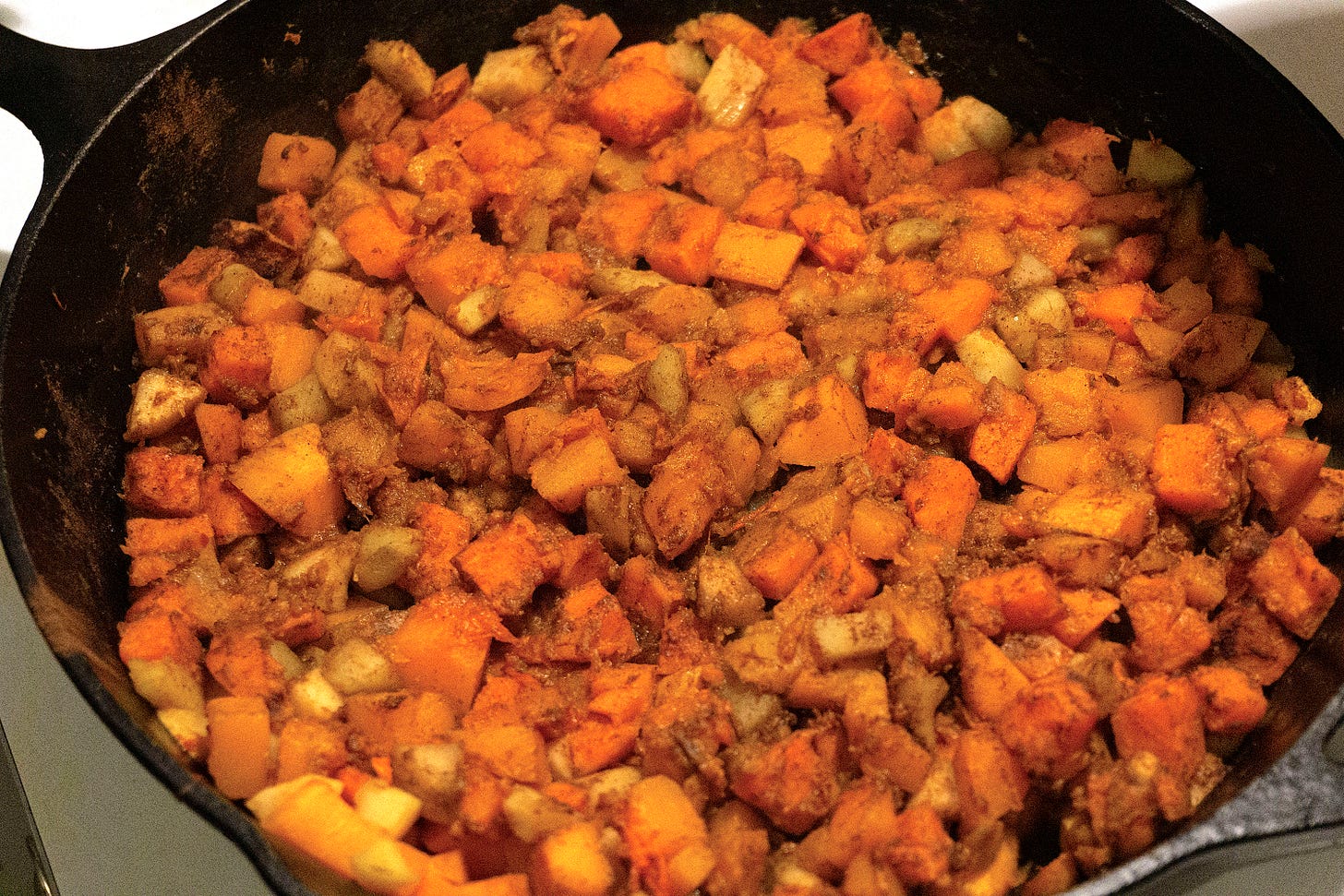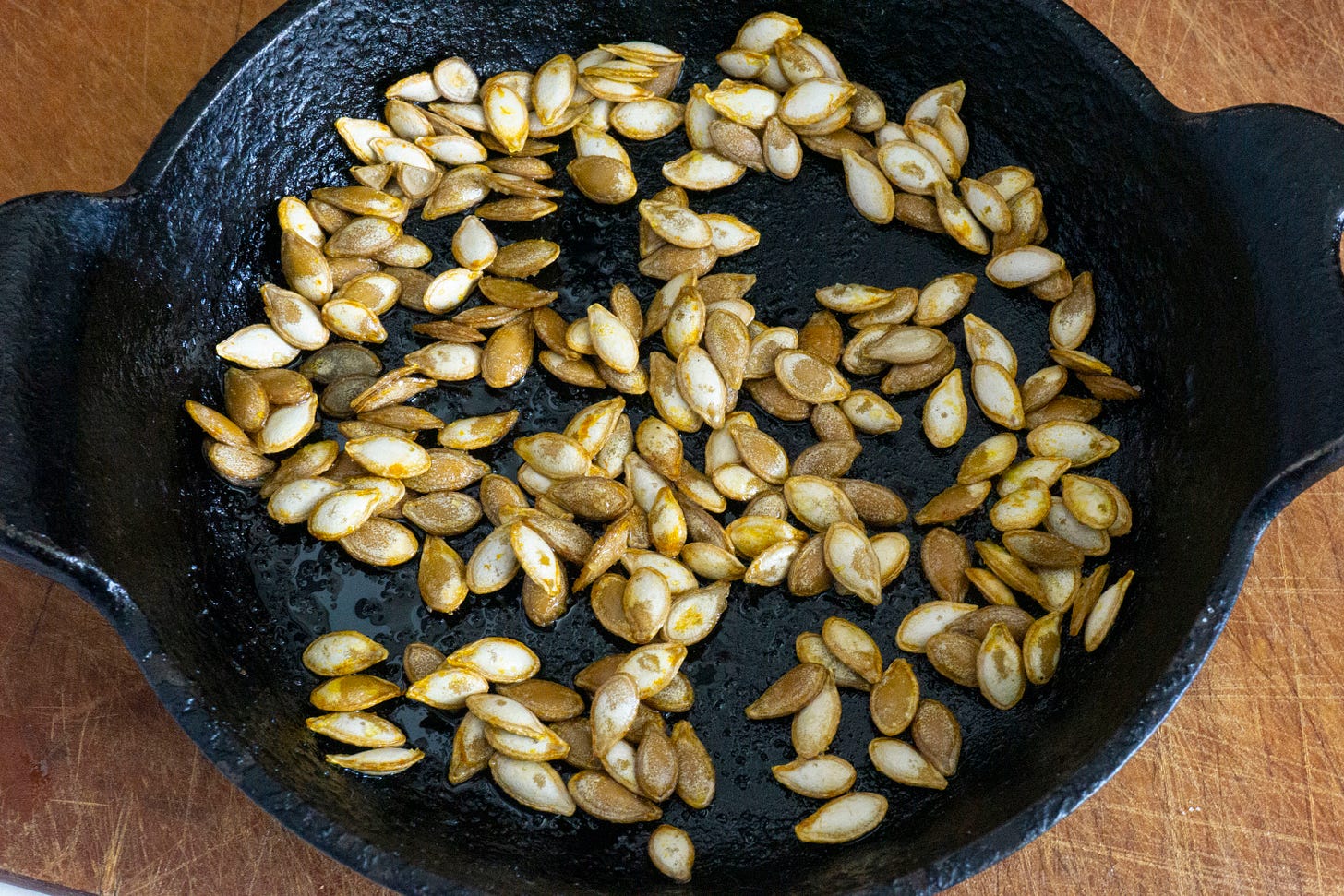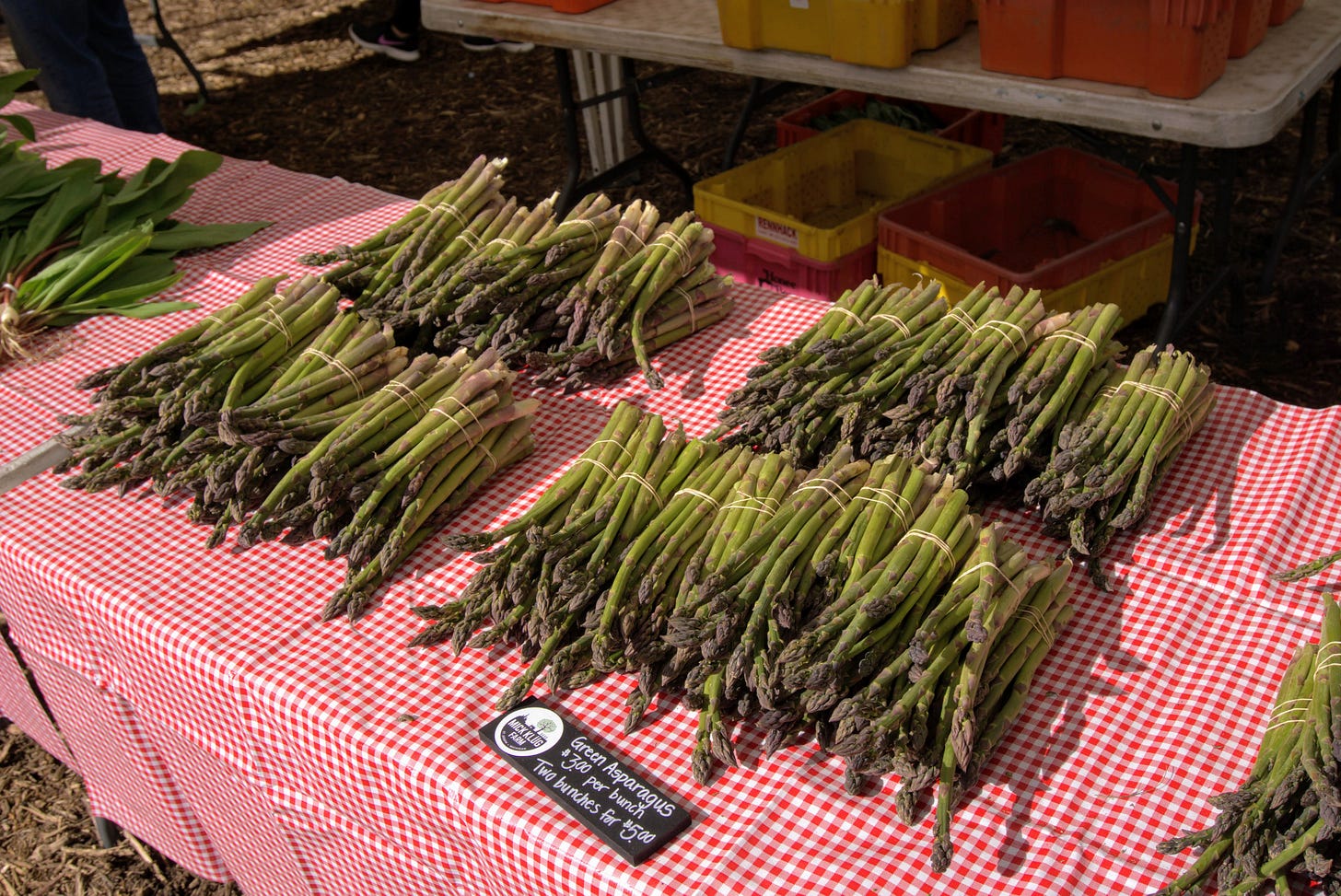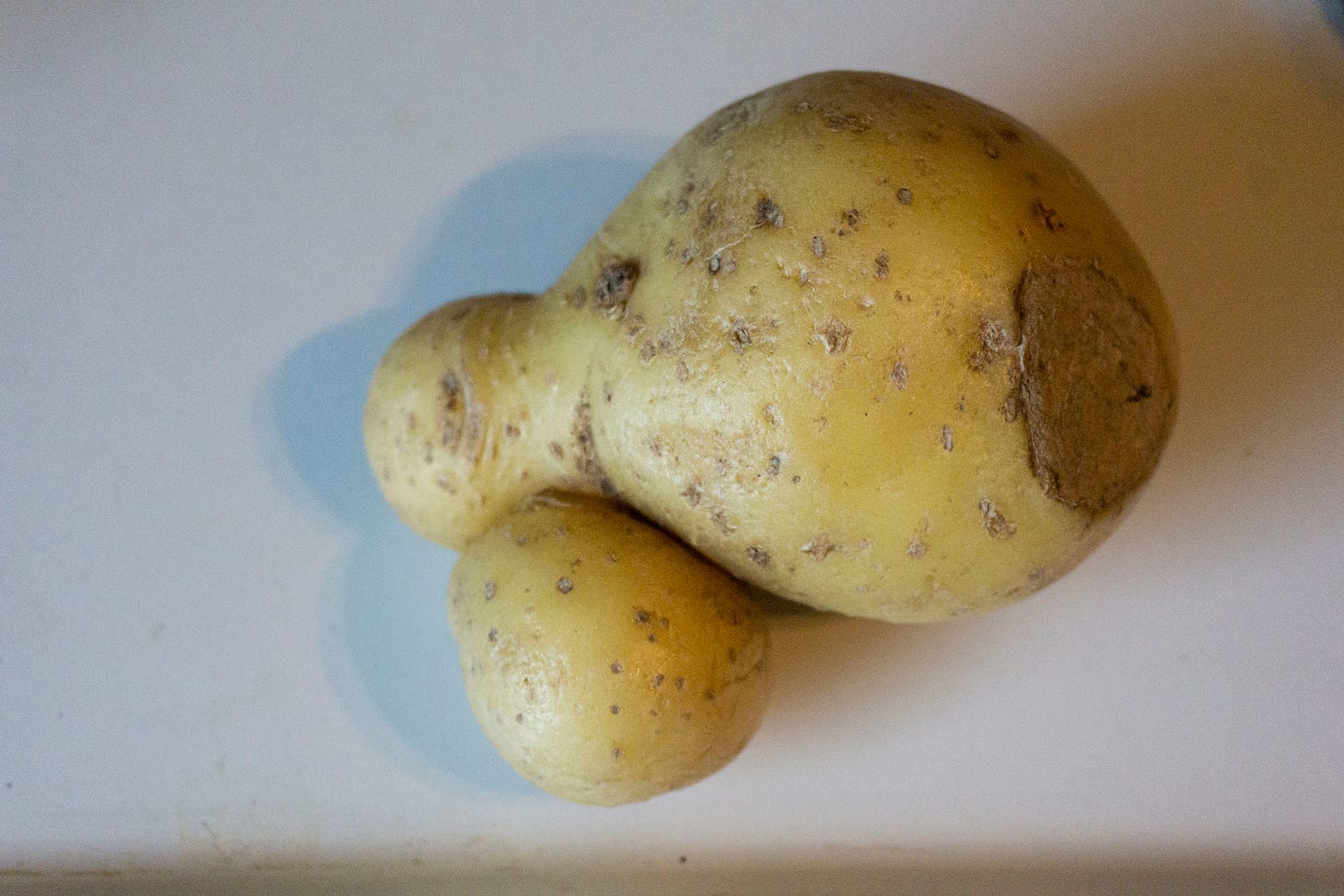I am passionate about local food.
First, I had a passion for any food, and I inherited my cooking jones from my mother. I was a Good Food early adopter in the ‘80s, driving 10 miles to the nearest Whole Foods and becoming a farmers market regular. And that was all before I left a 30-year career as a political journalist in Washington, D.C. 10 years ago to move to Chicago (my wife Barb grew up on a farm in Peotone, just south of the city).
Thirty years in politics was enough. I wanted to do something mission-driven, and with some serendipity I ended up focusing on local and sustainably produced food.
Through seven years doing communications at Chicago nonprofit FamilyFarmed and through my proximity to Green City Market, I met and made friends with amazing people — farmers, market managers, processors, chefs, school and community garden creators, food access advocates, entrepreneurs, promoters of food as an engine of economic growth, and more — who are building a better food system.
These are people who always deserved to have their work and their stories elevated. While I was pleased to write articles about these folks for FamilyFarmed, they haven’t had a comprehensive platform to talk directly to consumers and among themselves.
Until now.
I’m wrapping up my time with FamilyFarmed, and the idea of a local food news source went from the back of my brain to the front. On Local Food Forum, you’ll meet innovators and creators across the local food spectrum and learn the challenges and joys of getting local food on everyone’s table. You’ll find news you can use about where to find and prepare local food. Lots of pretty pictures too (I’m a photographer).
And there will be features that are just fun. It’s food. No reason to be stodgy.
Local Food Forum is in “soft launch” mode, meaning access will be totally free for the first few issues. I can only do this long-term if it pays some bills, so a paid subscription option will launch soon with the low, low price of $5/month or $50/year.
If you only want to read, you are welcome to do so for free, but if you want to comment and participate in the conversation, you’ll need a paid subscription. I hope you do subscribe because it isn’t your newsletter unless you are participating.
Welcome and I hope you enjoy.
Meet…
Prairie Wind Family Farm is located in the Prairie Crossing conservation community in Grayslake, Illinois, about 45 miles north of downtown Chicago. Owners Jen and Jeff Miller manage 40 acres, with 12-15 acres in cultivation under their crop rotation schedule. On that modestly sized property they produce 125 varieties of vegetables and a number of cover crops, including sunflowers that they sell at their farmstand. Prairie Wind also sells to community-supported agriculture (CSA) customers (learn more by clicking the button below).
Jen also serves as managing director of the Liberty Prairie Foundation.
The following are excerpts from the interview I conducted with Jen for an article about regenerative agriculture published this month in Natural Awakenings magazine.
Q: On your website you describe your farming as Organic rather than Regenerative.
A: Yes, we use organic because we are USDA certified organic and only USDA certified organic producers are technically allowed to call themselves organic farmers! Additionally, we have the Real Organic certification, which certifies that we've proven that we go beyond the organic certification required by USDA. We work extremely hard to farm this way and we've found that when sharing our produce, the word organic is familiar, easy to explain and the USDA logo matters.
Q: I recall that when I last visited in (gasp!) 2017, you and Jeff were exploring alternatives to your CSA-based business model. Did you decide to stick to your basics, or are you still exploring other options?
A: We've maintained our dedication to our CSA program because it's our most socially, environmentally and economically sustainable program. We also continued to attend the Oak Park Farmers Market throughout the years. In 2018, we also introduced a series: Pizza Nights on the Farm, which became a hugely popular agritourism piece of our business… In 2019, we also built a six-acre perennial Food Forest which includes nearly 1,000 perennial nut trees and fruit shrubs. In 2020, we launched a year-round farmstand where we sell a wide variety of products from 12 different IL, MI, WI, IN local farmers. We've been told it was a "lifeline" to several families looking for a safe, reliable local food source during the pandemic…
Throughout the years, we donate thousands of pounds of food to local food banks and mentor beginning farmers at the Farm Business Development Center.
Q: CSA, which was struggling for several years, appears to have had a revival during the pandemic… Did Prairie Farm benefit from this paradigm shift, and if so, are you confident this will persist after the crisis eases into whatever the New Normal is?
A: Yes, we sold beyond what we had originally planned to plant and increased our CSA size by 35 percent this past season. In this new normal, we're hopeful that people now better understand the value of local small businesses (including small farming families like us!) and value what small businesses provide to the local community and local economy. The pandemic has really shown the importance of shopping with your values in mind and we're hopeful this trend will continue for our farm business, local restaurants and local businesses in general. A quote from one of our farming mentors, "We all do better when we all do better!"
Let’s Go to the Market (Soon)
The Logan Square Farmers Market’s indoor market is taking place on Sundays through March 28, 9 a.m.-3 p.m. at 3029 & 3031 N. Rockwell St. (a little off its usual beaten path). Logan Square is the only major indoor farmers market operating in the immediate Chicago area this year due to COVID social distancing restrictions.
Green City Market had to scrap its usual Saturday winter indoor market at the Peggy Notebaert Nature Museum. But its year-round pickup and home delivery e-commerce option through the WhatsGood app has continued through the off season.
Meanwhile, a few markets have released their scheduled opening dates and they provide a ray of optimism that this will be a more normal year. The websites of the Logan Square Farmers Market and the Wicker Park Farmers Market both set Sunday, May 9 as the starting date for their outdoor markets.
Make a Difference
The Illinois Stewardship Alliance — which advocates on behalf of local farmers in Springfield — is holding its first virtual Food and Farm Week of Action April 19-22… and they are looking for volunteer Lobby Day leaders to
schedule a meeting with their state legislators,
help farmers and eaters in their legislative district prepare to participate,
report back on the conversation, and
thank legislators for meeting with Alliance members.
Click the button below to sign up and help the Alliance promote policies that will build a better food system.
Make a Dish
It’s March, so we’re in the most challenging season for local food lovers. The spring-summer-fall growing season hasn’t started yet, and most of last year’s bounty has already been consumed.
But you can still feast seasonally on the handful of crops that store well without losing quality over the long winter. These include sweet potatoes, butternut squash and apples, which play well together in this simple and super-easy baked combo.
If this dish sounds familiar, it’s because you may have made something like it for Thanksgiving or the holiday season. It’s just as good now.
Baked Sweet Potatoes, Squash and Apples
1 large or 2 medium sweet potatoes, peeled and halved
1 medium butternut squash, peeled and halved (SAVE THE SEEDS!)
2 medium sweet apples, peeled and cored
1 tablespoon vegetable oil or melted butter
2 tablespoons maple syrup
1 tablespoon cinnamon
Cube or dice the potatoes and squash, and put in a pan or casserole. Add the oil and stir. Cook in a 375 degree oven for 30 minutes. Dice the apples and add them to the veggies, stir, and cook for 10 minutes. Add the cinnamon and maple syrup, stir, and cook for up to 10 minutes, checking for doneness.
Roasted Squash Seeds
So easy to make your own snacks (and cut down on food waste). Take those seeds you set aside, rinse to get the squash gunk off, and set on a mat or paper towels to dry. Then put them in a small pan with just enough olive oil to coat, then put the pan in a 325 degree oven for 20 minutes (or until they are just getting brown). The only challenge: not polishing them off while they are still in the pan.
Take a Quiz
Chicago’s Green City Market in the late 1990s played a leading role in defining the Chicago local food region. The market today accepts vendors from which of the following states.
a) Illinois only
b) Illinois and Wisconsin
c) Illinois and Indiana
d) All the states abutting Lake Michigan (Illinois, Indiana, Michigan, Wisconsin)
Get the answer in the next issue of Local Food Forum.
Name That Vegetable
The potato nose.







